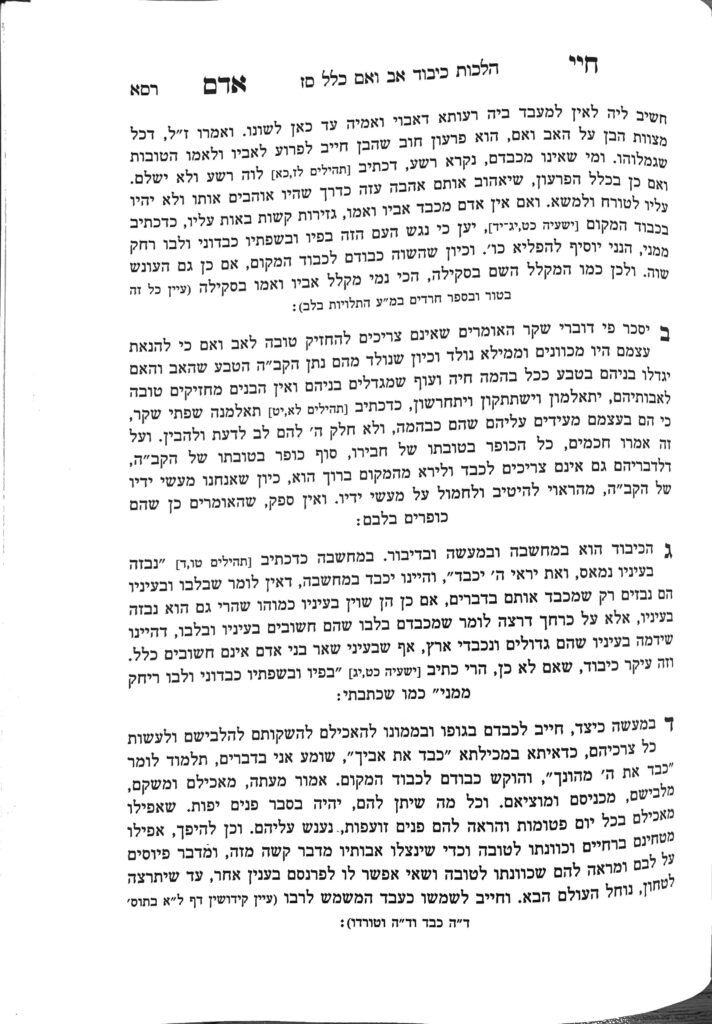We are beginning siman 2. The Chayei Adam addresses an argument used as an excuse by people to relieve themselves of the chiyuv kibud av v’eim. (He is not yet addressing the halachos.)
The Chayei Adam writes that a person who makes the following false claim should have their mouth shut (paraphrase of Tehillim 63:12). People argue that they do not have a chiyuv kibud av v’eim because their parents intended for their own benefits from intimacy. Once the child was born, their parents only took care of them because Hashem gave them an instinct to take care of their child, akin to the instincts of animals to take care of their young. The Chayei Adam condemns this thought process with the strongest of terms. He writes that such people should become mute due to their sheker, and that one who compares people to animals are themselves akin to animals. Hashem did not give such people the appreciation of the qualities that make them different from animals. Chazal had such people in mind when they said that one who is kofeh tov to other people will eventually be kofeh tov to Hashem. According to their thought processes, they also have no chiyuv hakaras hatov to Hashem, since, according to them, the fact that Hashem created us does not bring with it any inherent need to be makir tov. The Chayei Adam writes that really, such people deny the reality of creation, and do not truly appreciate what they have received.
The Chayei Adam simply discounts this through process as ridiculous, but does not explain why it is flawed. Rav Wolbe, when he writes about hakaras hatov, explains that the middah of hakaras hatov does not belong in the spheres of bein adam l’chaveiro or bein adam lamakom, but rather bein adam le’atzmo. Hakaras hatov is a defining element of a human being, and is intrinsic to a person’s self. There are people who assume everything belongs to them, and there are people who understand that whatever they have does not inherently belong to them and appreciate whatever they do receive. The givers intent is irrelevant; the point is that the recipient appreciates the good which they received. Chazal call gratitude hakaras hatov, because it comes from a recognition of the good received.
Thus, people deny kibbud av v’eim not because they have a philosophical argument against it, but because they feel, deep down, that they deserve what they were given. When a person starts with the recognition that the good which Hashem, what one’s parents, or anyone else gave them is not deserved, they will want to give back to the source of that good, regardless of the givers intention. This thought process is bein adam l’atzmo, because it starts with the internal assumption that a person does not inherently deserve the good they have been given. This is how Moshe Rabeinu could have hakaras hatov to the sand and water, and explains why the argument brought above by the Chayei Adam is a falsehood.
Summary
Hakaras hatov is middah related to bein adam l’atzmo. When a person realizes that they did not necessarily deserve the good they received from their parents, they will have hakaras hatov to their parents, regardless of their parents intentions.



